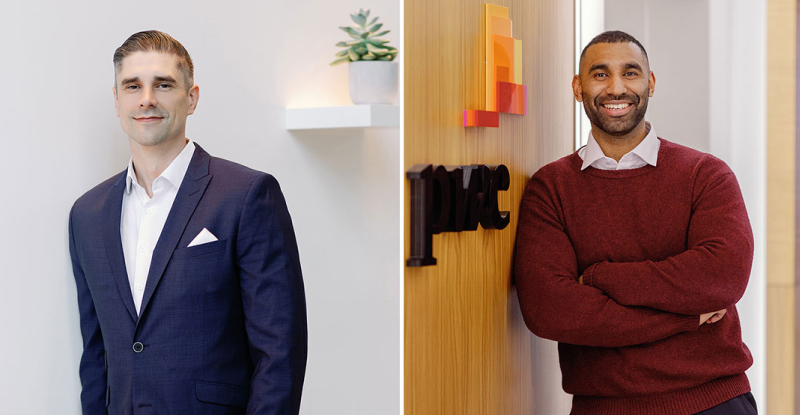
In our podcast episode, Laura Villacrusis, senior consultant with Kwela Leadership speaks with Vince Kanasoot, communications specialist at CPABC, about what makes a high-performing team member. Part of our Coffee Chats with CPABC podcast series.
Part of enhancing our leadership journey is by supporting others. Explore your coaching abilities with expert guidance from Laura Villacrusis at the Women in Leadership Program. Starts Sept. 25 – register today.
What distinguishes high-performing organizations from others? Oftentimes, team members have strong awareness of what it takes to play a constructive role as a member of their high-performing team.
In these environments, special emphasis is placed on the interpersonal skills of team members, for example, advocacy, listening, and conflict resolution. Most importantly, every individual is clear on what the scope of their role is, and how it pieces into the puzzle of their organization’s overall objective.
This article will discuss what some common barriers to achieving high performance are, what employees can do to strengthen their performance, and how leaders can support them.
Communicating clearly and having real conversations
Unclear communications is often an underlying factor that hinders high performance, and this happens in numerous ways. Sometimes, expectations on the scope of individual roles aren’t clearly defined, and this can cause confusion and conflict among an employee, their co-workers, and leaders. Even when expectations for a role are clearly laid out, it might not be clear how that individual’s contribution feeds into an organization’s larger objective and goals.
This is a huge barrier in achieving organizational high performance, because people have a hard time figuring out how to best perform individually and collectively, if they can’t align to a higher goal or be clear about their purpose. It’s therefore important for leaders to prioritize setting clear expectations for each team member, including their expected output and how their efforts relate to the bigger picture. This will also minimize silo mindsets with teams, where they feel like they are in a vacuum from the overall system.
Another common communications challenge is having those tough – but necessary – conversations. Things that cause conflict or discomfort need to be talked about, but in a skillful manner. Often, teams have group conversations on the surface, but the real conversations happen outside of the meeting room. This can be unproductive and lead to a lot of misunderstanding.
How can leaders facilitate critical conversations honestly as a group? Encouraging people to speak up and objectively talk about things without labeling or calling each other out in ways that are disrespectful is key. This means coming prepared to express your concerns in a way that’s objective and based on observations. The more we're objective and specific about the feedback we give others, the more confident we will be in bringing issues up. And if we're objective, we’re able to be honest about our feedback and still maintain positive relationships.
Employees: Taking ownership on self-development
No matter what role we’re in, we all need to take ownership of our self-development if we want to achieve high performance. And it’s not necessarily about working harder, as it is about working smarter. Even if your leader has done a great job of defining your role, you need to continually stay clear on expectations and be proactive by asking good questions. This is especially true when you’re starting out in a new role and/or with a new organization.
For example, you might ask:
- What are the expectations for me in my role?
- What does success look like?
- What resources are available to me?
- Who can I ask when I need help?
- How do I know that I'm doing well?
- How often can I check in with either my supervisor or my peers?
You might not have all the information in the beginning, but it’s important to remain curious and open. Try to proactively build positive relationships with others, especially your peers. In any organization, there's an existing culture.
And while some aspects of a culture may be clearly articulated, part of workplace culture is also about how things are done and can only be learned by observing others, diving into the work, keeping our eyes open, and learning as we go.
Leaders: How leaders can support employee development
One way for leaders to support employee growth is to provide them with autonomy instead of just directing them. Leaders should consider if there are opportunities where employees can try things out and learn as they go. When people feel a sense of autonomy while learning, it helps keeps them engaged.
At times, leaders may find themselves in positions where they need to learn how to get out of the way, in order to let employees fully step into their respective roles. What does this mean? When someone steps into a leadership role, it's usually because they've excelled in something specific, for example, an area that requires specialized technical knowledge and skills. But once that person moves into leadership, they may need to let go of what they used to do day-to-day, and instead focus on overseeing and delegating tasks, and providing opportunities for their employees to grow and develop.
For example, if someone is a successful engineer, they may get promoted to become a leader of engineers. When they get this role, all of a sudden they may go from doing what they love and what they’re used to doing all the time, to doing it 10% of the time. And 90% is about leading, managing, motivating, setting expectations, collaborating with peers who are also leaders, and advocating for their team.
And that's a big transition. New leaders need to be very thoughtful in how they deal with this transition. Because if they're not able to make this transition happen, they’ll become overloaded, wanting to keep doing the same work they did before. And so a challenge for leaders, is to be able to say, "Okay. I'm going to let others do the work that I love doing, and I'm going to support them to be successful."
Laura Villacrusis, senior consultant with Kwela Leadership, has over 25 years of experience working with organizations to support individual and organizational performance.



